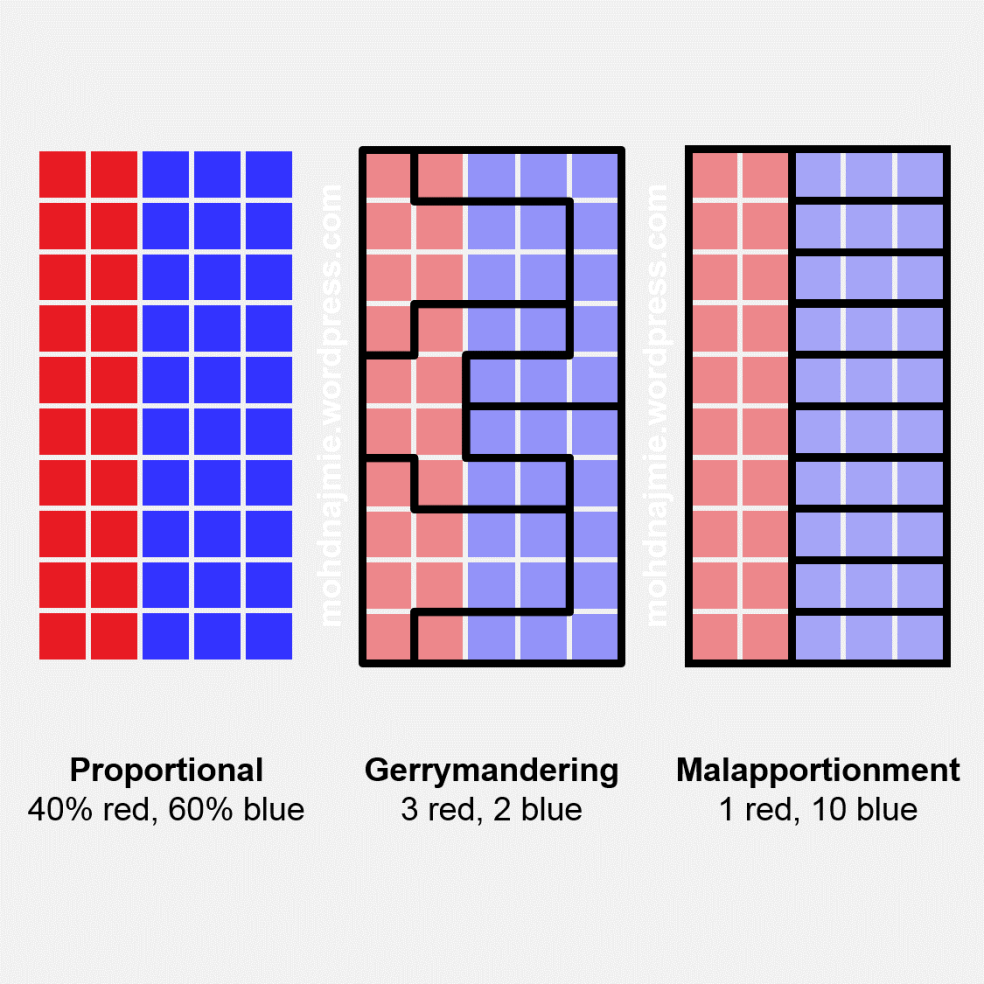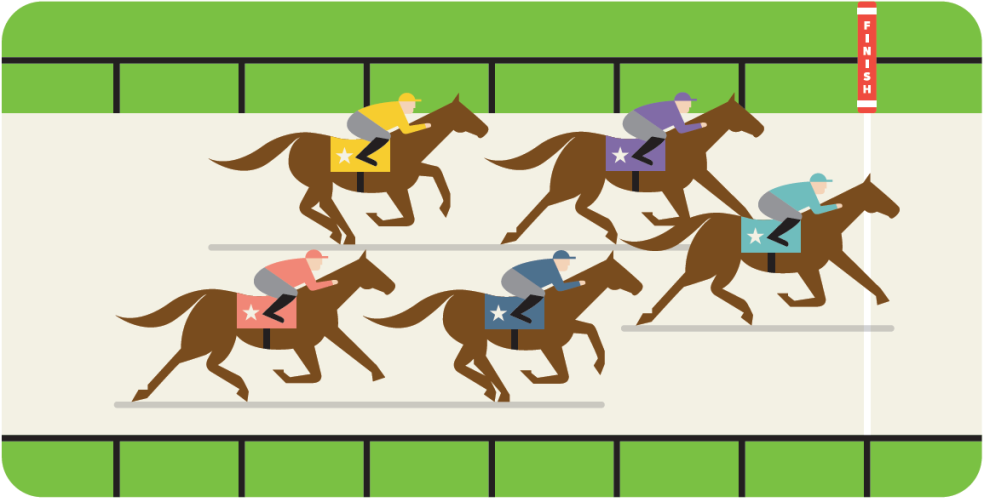Barisan Nasional (BN) (National Front) has ruled Malaysia for 61 years, the only ruling party since the country’s independence in 1957.
Until 2018. Although their support is waning (they lost two-thirds majority in 2008, lost popular vote in 2013), their stranglehold seemed impenetrable, because they’ve employed multiple tactics to ensure their continuous rule. How did the impossible happen?
Their first tactic is malapportionment. This is a variant of the more commonly known tactic, gerrymandering. In fact, malapportionment is more blatant than gerrymandering. Gerrymandering at least tries to divide the districts to approximately equal sizes. Malapportionment deliberately makes the sizes different.

The biggest parliament seat was Bangi, Selangor with 178,790 registered voters, the smallest was Igan, Sarawak with 19,592 registered voters. Bangi was 913% bigger than Igan.
But there is a special provision in the Federal Constitution Article 161E Clause (2) Paragraph (e) that Sabah and Sarawak’s representation (in proportion) in the House of Representatives (Dewan Rakyat) should be no less than their allocation to their allocation on Malaysia Day, which was 25%.
Therefore we cannot directly compare parliament seat sizes between Sabah and Sarawak’s with non-Sabah non-Sarawak seats. But even after separation, malapportionment is still significant.
The largest seat at Sabah and Sarawak was Kuching, 418% larger than the smallest seat Igan. At Peninsular states and federal seats, the ratio between biggest and smallest is 655% (Bangi to Putrajaya).
BN curiously won the smaller seats and not winning the bigger seats. They won the 9 smallest seats at Peninsular states and federal while not winning the 19 largest seats. At Sabah and Sarawak, they won 8 of the 10 smallest seats (2 went to independents, I’m curious how they campaigned and won) and losing 8 of the 9 largest seats.
Then how they still manage to lose the overall election?
One of the shortcomings of first-past-the-post system is what is known as the spoiler effect.
(First-past-the-post or FPTP is the elections system Malaysia and some other countries use, including the United States and the United Kingdom, where the land is divided and each piece of land elects a single representative by a simple election where who wins the most votes wins. The name derives from horse racing where the winner is the first past the post.)

Image credits to Broadbent Institute.
First-past-the-post will inevitably create a two-party system (two dominant parties with a lot of small parties). A third contender will draw away votes from both parties and may result in a different winner than if the third party did not contest at all.
Parti Islam Se-Malaysia (PAS) (Malaysian Islamic Party) was part of the Pakatan Rakyat (PR) (People’s Alliance) last time around in 2013. This time, they separated and took on both BN and the offshoot of PR, Pakatan Harapan (PH) (Alliance of Hope). There were three-cornered fights in 192 out of 222 seats contested. Out of these, 90 seats – almost half of the assembly – had spoiler effects.
Here I defined spoiler effects as seats where the losers combined votes are more than the winner. It means more people don’t want the winner to win. But the winner won anyway because the people only knows who not to vote for, but they don’t know who to vote for.
For example, the very first, the northernmost seat, P1 Padang Besar, already had spoiler effect.
Majority don’t want BN to win, but their vote split between PAS and Parti Pribumi Bersatu Malaysia (PPBM) (Malaysian United Indigenous Party) (who contested under Parti Keadilan Rakyat or PKR or National Justice Party flag). In this example, PAS can be said as spoiled PPBM’s vote.
BN benefitted at 46 seats due to this spoiler effect, but also lost 36 as a result. PH won 32 but lost 25. In the end, the spoiler effect did not seem to play a major role.
But the voting day set on a midweek, on a Wednesday, might had had an impact. The voter turnout was unusually high for a midweek polling day.
It might be due to angered voters, together with the disqualification of candidates from opposition, late delivery of postal votes, and advent and prominence of social media and crowdfunding.
